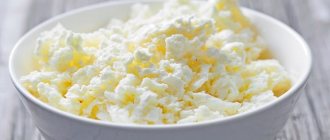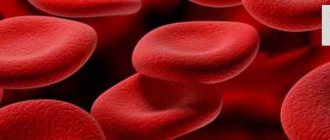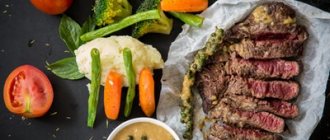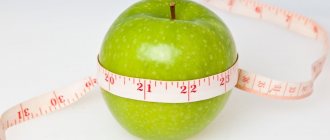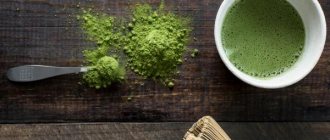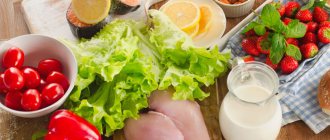- general information
- Pseudo-vegetarianism
- Lacto-ovo vegetarianism
- Lacto-vegetarianism
- Ovo-vegetarianism
- Veganism
- Additional classification
Vegetarians are different.
Their diet may differ, since there are a sufficient number of controversial animal products. They may not agree on a worldview about the relationship between man and the world around him... The slightest nuances divide this category of people into different camps. Open conflicts and confrontations rarely arise, but each of them is ready to defend their point of view on the correctness of their own food system to the end. Today, types of vegetarianism are classified mainly depending on what exactly they allow themselves to eat.
general information
All types of vegetarianism depending on diet:
- Lacto-vegetarians avoid meat, fish and eggs, but eat dairy products;
- macrobiotics - vegans who refuse to consume oils and sugar (bone charcoal is used to purify it);
- Young vegetarians eat white poultry and fish;
- mono-raw food eaters eat only one type of vegetable or fruit at one meal;
- ovo-vegetarians avoid meat, fish and milk, but eat eggs;
- Ovo-lacto vegetarians avoid meat and fish, but eat milk and eggs;
- Pesco-vegetarians refuse meat, but eat fish and seafood;
- Pesco-pollo vegetarians avoid red meat;
- Pollo-vegetarians refuse animal meat, but at the same time eat game, i.e. poultry;
- Semi-vegetarians limit the consumption of not only meat, but also fish and seafood;
- sproutarians - the basis of the diet is sprouted grains and sprouts, as a supplement - vegetables and fruits;
- sub-vegetarians - those who eat only those plants that do not have a strong odor (like onions and garlic);
- raw foodists refuse foods that have been processed by humans in any way (cooked, fried, salted, pickled, etc.), therefore they eat exclusively fresh plant foods;
- traditional vegans refuse any animal products: meat, fish, eggs, dairy products and even gelatin and honey;
- flexitarians are pseudo-vegetarians who consume meat in limited quantities, allegedly feel remorse for this, and on this basis still consider themselves to be part of this ideology;
- Freeganists eat meat only if it is free;
- Fruitarians are vegans who consume exclusively fruits, nuts, berries, and seeds.
All these types of vegetarians coexist safely, they are interpenetrable (that is, there are no clear boundaries and frameworks, you can move from one food system to another). Their diversity, on the one hand, is a rather positive phenomenon, since you can always choose which party to join so that you have like-minded people. On the other hand, most movements have appeared recently and have nothing to do with vegetarianism. That's why they come with the prefix pseudo-.
And if, in the classical sense, eggs and milk are indeed controversial products, whether they fit into this ideology or not, then, for example, game, red meat or fish have never been considered such.
The summary table will clearly show you the dietary features of a particular type of vegetarianism.
Notes on the table:
* - omnivores, who do not limit themselves in any way in food; *2 - without processing; *3 - at a time and only one type; *4 - fruits, nuts, berries, seeds; *5 - except onions and garlic; *6 - sprouted seeds and sprouts; *7 - moderate; *8 - game; *9 - only red meat; *10 – free only; *11 - white poultry meat.
This is interesting. It’s rare, but you can still meet old vegetarians today. Their history goes back to the colonization of India by the British. The two nations lived (albeit in conflict) side by side for many years, and therefore actively adopted each other’s food traditions. This is how people appeared who ate fish and seafood and also allowed themselves to feast on poultry and pork - all other types of meat were prohibited for them.
All the pros and cons of vegetarianism: what is it?
What is the meaning of the vegetarian movement? It is based on one important principle: eating foods exclusively of plant origin with a complete ban on animal products, including eggs, milk, honey (or their partial exclusion from the diet).
Many uninitiated people believe that by refusing meat products and other items of animal origin, the menu becomes completely boring, banal, and the balance of nutrients is lost. However, you can easily argue with this if you know which products and in what quantities are available to vegetarians:
- 300 types of vegetables and root crops.
- 600 types of fruits.
- 200 types of nuts.
Pseudo-vegetarianism
Recently, the number of so-called pseudo-vegetarians has increased, who are not ready to completely give up meat, but at the same time claim that they are adherents of vegetarianism. Most often, they simply limit the amount of meat in their diet or refuse some kind of meat. Some do this while dieting to lose weight. Others follow fashion and even try to show interest and participation in the fate of animals innocently killed for food for humans.
In fact, true vegetarianism is a complete rejection of any meat, be it animals, poultry or fish, red or white, boiled or fried. Those movements that do not comply with this criterion come with the prefixes pseudo- or false-.
There are pseudo-vegetarians whose diet is sometimes brought to the point of complete absurdity. For example, freeganists at a party will not refuse to eat a piece of meat, because it is served for free and will still either be thrown away or eaten by another person. But they themselves do not buy this product, so as, supposedly, not to become a participant in the “global slaughter” of animals.
Lacto-ovo vegetarianism
Despite the fact that such different types of vegetarianism coexist in the modern world, our task is to consider the classical movements in more detail. These include primarily lacto-ovo/ovo-lacto vegetarianism.
Are eating:
- dairy products;
- eggs;
- plant foods;
- honey, butter, sugar, gelatin - optional.
Don't eat:
- meat;
- fish;
- seafood;
- cheeses due to the content of rennet, which is produced from the ventricles of ruminants.
Weekly norm (which prevents the development of nutritional deficiencies):
- 5 servings of vegetables;
- 4 servings of fruit;
- 11 servings of grain dishes;
- 8 servings of dairy products (it is better to replace fresh milk with any fermented milk products);
- 7 eggs.
Pros:
- balanced, varied diet;
- reducing the risk of deficiency of vitamins, minerals and especially protein, which they get from eggs and dairy products;
- is an ideal nutrition system for athletes who care about their muscle mass: with regular training, you can hone your figure and make it fit and sculpted;
- there is no risk of osteoporosis and other problems with the musculoskeletal system of the body, since milk is an inexhaustible source of calcium;
- the ability to lead a normal lifestyle;
- the risk of developing diseases such as cardiovascular diseases (this is associated with a decrease in blood cholesterol levels), hypertension, diabetes mellitus, obesity and oncology is reduced.
Minuses:
- there are contraindications: chronic diseases, pregnancy, lactation, age under 16 years;
- Frequent consumption of eggs and milk can lead to intestinal disorders, so these products should be included in the diet in doses.
Lacto-ovo vegetarianism can be considered as the first step towards establishing a new way of life. As practice shows and doctors say, you cannot immediately become a pure vegan, as this is fraught with serious health consequences. The diet needs to be changed gradually. Therefore, this type of vegetarianism is the ideal bottom step in this pyramid.
On a note. The only pure form of vegetarianism is veganism. For all other trends in popular science literature there is another name - hybrids.
Lacto-vegetarianism
Another common type of vegetarianism is lacto-, i.e. those who consume dairy products (after all, in their opinion, there is no need to kill anyone for this), but at the same time refuse eggs along with meat. Explanation: an egg is a potential chick that, under certain conditions, could be born. This means that if you eat them, you automatically deprive him of such a chance.
Are eating:
- dairy products: yoghurt, kefir, colostrum, milk, whey, yogurt, ice cream, fermented baked milk, snowball, cream, cottage cheese, butter;
- plant foods;
- honey, butter, sugar, gelatin - optional.
Don't eat:
- meat;
- fish;
- seafood;
- cheeses;
- eggs.
Weekly norm:
- 6 servings of vegetables;
- 5 servings of fruit;
- every other day - a portion of legumes (they will make up for the lack of protein);
- 12 servings of grain dishes;
- 14 servings of dairy products.
Pros:
- possibility of a balanced diet;
- the risk of diseases of the musculoskeletal system and heart is reduced, since calcium is present in the menu every day;
- no need to give up your usual lifestyle.
Minuses:
- there are contraindications;
- a large amount of dairy products in the diet leads to fermentation and discomfort in the gastrointestinal tract.
In fact, lacto-vegetarianism, like lacto-ovo, can also be used as a springboard for further development in this ideology. The diet of these people contains all the necessary nutrients that will allow the body to work without interruption.
Example of a daily diet
The basis of a vegetarian diet is considered to be products of plant origin containing complex proteins - these are legumes and whole grains.
They serve as the basis for preparing lunch and dinner. We offer an example of what a vegetarian can eat during one day: Breakfast:
- corn or wheat porridge with water or milk, depending on the type of diet. If desired, add fresh berries and fruits, nuts or candied fruits to the prepared porridge;
- a glass of freshly squeezed orange or apple juice.
Dinner:
- bean or bean soup with parsley and asparagus, served with whole grain bread croutons;
- dumplings with new potatoes, seasoned with soy sauce;
- fruit cocktail.
Afternoon snack:
- light vegetable salad of spinach and kale,
- berry mousse.
Dinner:
- beet and carrot cutlets with boiled lentils,
- green salad,
- mint tea with lemon.
According to clinical studies, a meat-free diet limits the risk of cardiovascular disease.
But often people do not give up meat, fearing that their daily menu will become boring and monotonous. Such fears are unfounded. There are many vegetarian recipes that can satisfy any gourmet. With the right approach, a vegetarian diet will be well-balanced, and the food will be tasty and healthy.
Ovo-vegetarianism
Unlike lacto-, ovo-vegetarians, life is much more difficult. They have to give up a wide range of dairy products. From their point of view, a cow is forced to give milk to a person almost all year round, and for this she needs to constantly calve. At the same time, the living conditions are often disgusting, animals are stuffed with various chemicals, and unwanted calves are taken to slaughter.
Are eating:
- eggs: soft-boiled, hard-boiled, in a bag, poached, omelette, shakshuka, mish-mash, etc.;
- plant foods;
- honey, butter, sugar, gelatin - optional.
Don't eat:
- meat;
- fish;
- seafood;
- cheeses;
- any dairy products.
Weekly norm:
- 7 servings of vegetables;
- 7 servings of fruit;
- 14 servings of grain dishes;
- 14 eggs;
- Every day your diet should include legumes or nuts as sources of protein and calcium.
Pros:
- such a nutritional system allows you to properly cleanse the body of everything unnecessary;
- there are no processes of fermentation, flatulence, which are characteristic of the lacto-vegetarian food system;
- suitable for building muscle mass during intense sports;
- Ovo-vegetarianism is ideal for people suffering from lactose intolerance.
Minuses:
- there are contraindications;
- heavy odor from the mouth;
- increased cholesterol;
- high risk of failure;
- stomach problems.
It is not recommended to choose this type to start with, since the lack of protein and calcium of animal origin is always a risk of developing cardiovascular diseases, muscle atrophy and pathologies of the musculoskeletal system.
Compensation for vitamin deficiency
A vegetarian diet that excludes the consumption of dairy products can provoke an acute calcium deficiency.
The lack of this microelement in the human body is dangerous for the health of bones and teeth. A lack of the mineral can cause hair loss. For vegetarians who do not consume dairy products, calcium saturation comes from nutritional supplements and vitamins. Plants that contain calcium:
- soy milk;
- sesame;
- parsley;
- almond;
- hazelnut;
- garlic;
- cabbage;
- mustard.
The source of iron for vegetarians are products of plant origin:
- spinach;
- white beans;
- lentils;
- chickpeas;
- cashew nuts.
Good iron content in dried fruits is:
- dried apricots;
- prunes;
- raisin.
For better absorption of iron from plant foods, it is necessary to balance the diet by consuming foods high in vitamin C.
The body needs zinc for the proper functioning of the immune system. Plant foods that contain it:
- beans;
- pumpkin seeds;
- sprouted grains.
Vitamins B12 and D, necessary for the proper absorption of fats, proteins and carbohydrates, are not found in foods of plant origin. Therefore, strict vegans who completely exclude the consumption of dairy products and eggs will have to compensate for the deficiency of these vitamins with the help of artificially enriched dietary supplements.
Veganism
Classic varieties of vegetarianism simply cannot exist without a pure line. Its adherents refuse products that have at least some connection to the animal world. They are also called pure vegetarians.
There are a huge number of movements within their camp, which are also not always clear in terms of ideology. For example, Sproutarians eat only sprouted seeds, since for them, pulling out roots and collecting fruits is also akin to “killing” plants. Among the fruitarians there is a branch whose representatives eat only carrion so as not to cause damage to trees and shrubs. Very strange sub-vegetarians who refuse plant foods with a strong smell - how can this relate to the “We don’t kill” ideology?
Are eating:
- only plant foods.
Don't eat:
- meat;
- fish;
- seafood;
- cheeses;
- dairy products;
- eggs;
- honey and other bee products;
- gelatin;
- oil;
- sugar.
Weekly norm (depending on different types of veganism):
- 14 servings of grain dishes;
- vegetables and fruits - in unlimited quantities.
Pros:
- guaranteed weight loss, since plant foods are low in calories;
- adherence to the basic principles of proper nutrition;
- acceleration of metabolism;
- good regular cleansing of the body;
- improvement of well-being.
Minuses:
- poor diet;
- unbalanced diet;
- risk of anemia and iron deficiency;
- a long list of contraindications;
- sharp decrease in cholesterol;
- increased risk of colon cancer;
- bone density decreases;
- deterioration of blood circulation.
You should not start your acquaintance with vegetarianism with this type of it. Firstly, a sharp transition from the usual lifestyle and diet to such strict restrictions can end disastrously for health. Secondly, first you need to be imbued with a general ideology in order to withstand all these food taboos.
Related article: “Differences between vegetarians and vegans.”
Sometimes it happens. In fact, true vegetarians, regardless of which of the considered species they belong to, never condemn other people for their even opposing views on eating meat and other controversial products. Indeed, if they oppose the slaughter of animals, then they should treat their loved ones humanely. And yet there are fanatics who call ordinary people corpse eaters and murderers.
Benefit for health
It's hard to argue with the scientific evidence that reducing (or eliminating) meat consumption will have significant health benefits. However, there is reason to believe that pescatarians may have an advantage over vegetarians, especially when it comes to preventing colorectal cancer. According to a study published in JAMA Internal Medicine, the journal of the American Medical Association, people who eat a diet rich in plant-based foods and fish are 43% less likely to develop colorectal cancer. Additionally, in a sample of 78,000 people, when switching from vegetarianism to pescetarianism, the incidence of colorectal cancer decreased by an impressive 27%. The study authors attributed this reduction to omega-3 fatty acids, since pescatarians do often include fish in their diet.
The health benefits of both vegetarian and pescetarian diets are vast, but we have tried to summarize some of the main benefits of each diet.
Benefits of a vegetarian diet
• lowering blood pressure; • improved mood; • low risk of cancer; • maintaining a healthy weight; • reducing the risk of heart disease and diabetes.
Benefits of a Pescetarian Diet
• maintaining healthy joints; • preventing depression; • increasing mental abilities; • radiant skin and strong hair; • strengthening heart health; • prevention of inflammatory diseases; • increasing fertility.
The groups of pescatarians and vegetarians have been little studied in relation to each other, so it is still quite difficult to provide complete observational data. However, it should be said that anyone who chooses this lifestyle is likely to take more care of their health, become more active, and may give up smoking and alcohol.
Additional classification
Depending on the reasons that prompted people to join this ideology, vegetarianism can be of other types:
- healthy - if a person joined it in order to treat certain diseases, the cause of which may be the consumption of meat;
- ethical - the main trend in this block, designed to limit the killing and suffering of animals;
- religious - some teachings prohibit meat: Hinduism, Buddhism, Seventh-day Adventists;
- environmental - these vegetarians believe that raising animals for meat depletes the earth's natural resources;
- economic - farming is much more economically profitable than livestock farming.
Each of these types of vegetarianism has many followers who are ready to defend their point of view about proper nutrition. And if you are planning to join one of the movements, you should weigh the pros and cons, studying the slightest nuances in the products that they allow themselves to eat.
And remember that food is only the mirror surface of this lifestyle, which reflects the views of its adherents. The main thing is the ideology that is the basis of their inner world. "We don't kill anyone!" - this is what unites them and dictates the need to consume certain products.

